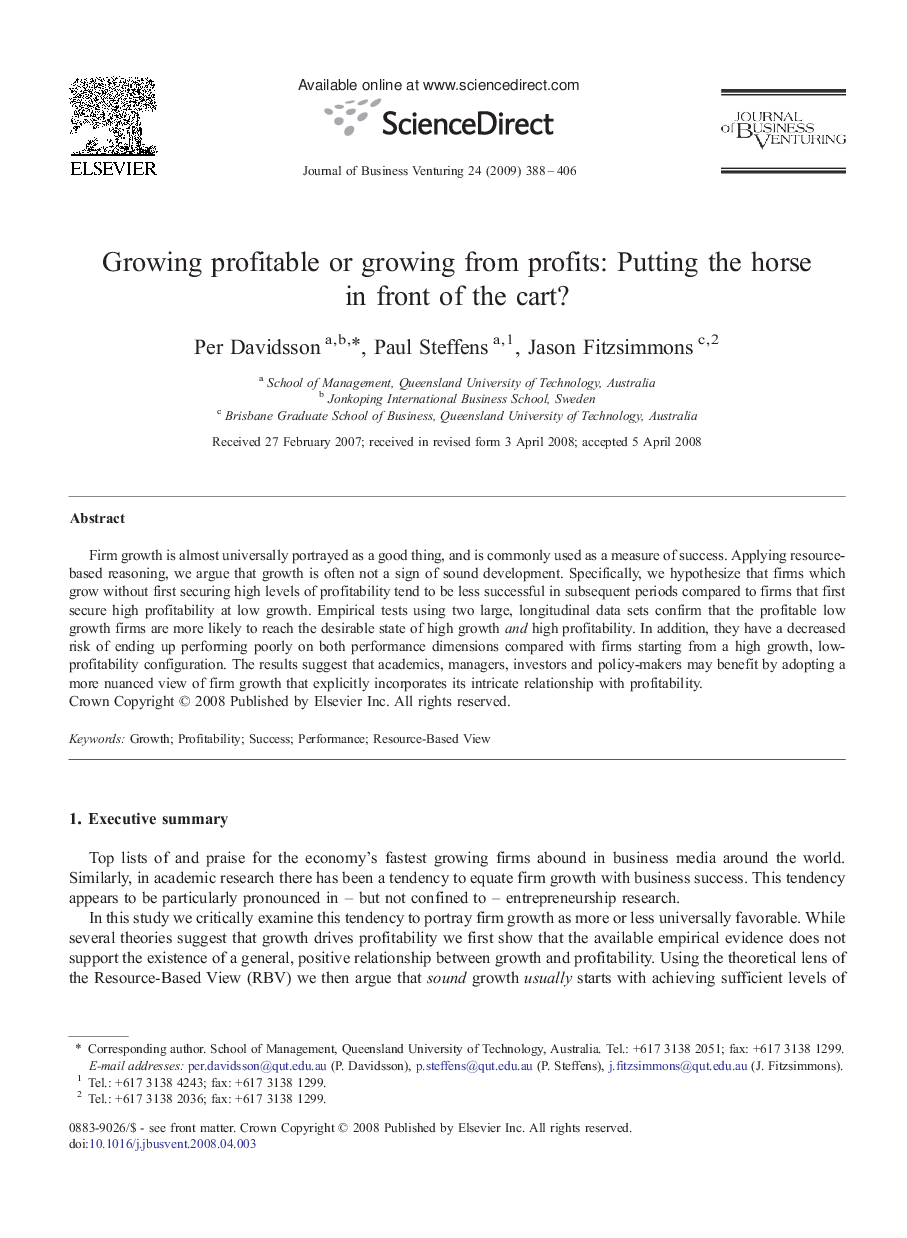| Article ID | Journal | Published Year | Pages | File Type |
|---|---|---|---|---|
| 1019583 | Journal of Business Venturing | 2009 | 19 Pages |
Firm growth is almost universally portrayed as a good thing, and is commonly used as a measure of success. Applying resource-based reasoning, we argue that growth is often not a sign of sound development. Specifically, we hypothesize that firms which grow without first securing high levels of profitability tend to be less successful in subsequent periods compared to firms that first secure high profitability at low growth. Empirical tests using two large, longitudinal data sets confirm that the profitable low growth firms are more likely to reach the desirable state of high growth and high profitability. In addition, they have a decreased risk of ending up performing poorly on both performance dimensions compared with firms starting from a high growth, low-profitability configuration. The results suggest that academics, managers, investors and policy-makers may benefit by adopting a more nuanced view of firm growth that explicitly incorporates its intricate relationship with profitability.
